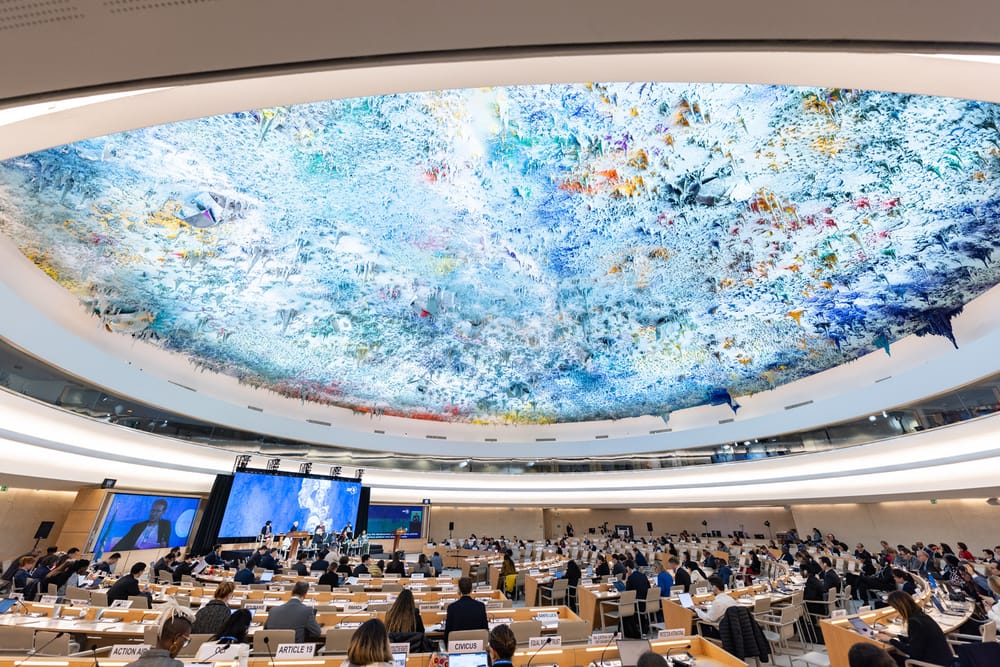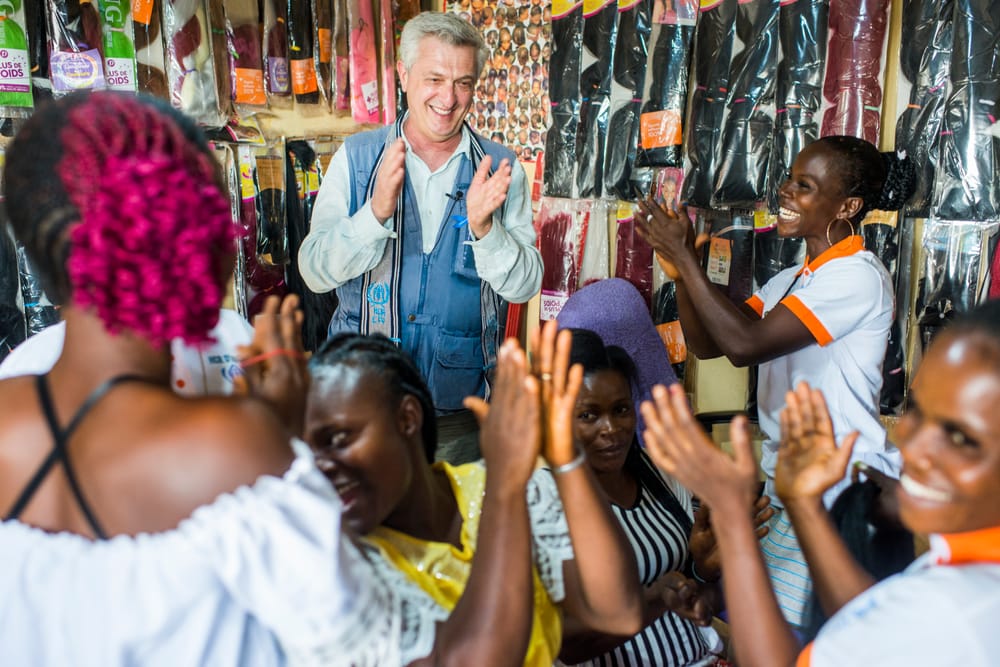By Christopher Fabian
Now having matured beyond explorations of cryptocurrency, blockchain technology has evolved from its roots in mathematics and cryptography to a versatile tool that can address a set of challenges faced by the current state of internet and data infrastructure. One application of current blockchain technology is the ability to tokenise real world assets. From finance to fashion, real estate to retail consumer goods, this implies transforming traditional processes into faster, clearer, and more transparent digital marketplaces. The recent relocation of Giga, a technology start-up within the United Nations, to Geneva gives some insights into the policies that make the city appealing for enterprises working in tokenisation.
With the advent of clearer regulation, companies in Switzerland are tokenising physical assets like precious metals, real estate, or art. A company holds an asset (a mix of various precious metals, a collection of paintings) that can be fractionalised. Each fraction, or token, can be bought, sold, and traded digitally. When properly regulated, this can create more dynamic financial opportunities for the asset. Tokenisation can create more liquidity in the asset class, and a marketplace for items which would otherwise be static and inaccessible.
Switzerland is at the forefront of developing regulations for tokenisation. In addition to real-world assets like property or precious metals, Switzerland has been leading the work on tokenised financial products. In January 2023, Lugano’s Public Authority issued a six-year bond via blockchain, raising CHF 100 million and selling out immediately. This issuance, widely highlighted as a public sector first, is part of CHF 1.5 billion of blockchain-based bonds, globally. For these bonds, blockchain acts as a means of settlement and a point of truth in transactions, creating transparency and lowering processing times.
The Bank of International Settlements, in December 2022, issued preliminary standards on the prudential treatment of crypto assets. These standards outline minimum regulatory requirements and apply to both Global Systemically Important Banks, such as Citi, Barclays, JP Morgan, and BIS Member country banks including UBS, Société Générale, and Standard Chartered. The treatment allows for a bank’s total exposure to risky crypto assets to be up to 2% of the bank’s Tier 1 capital.
Swiss regulation defines how assets can be tokenised and traded. The frameworks point to what type of synthetic or derivative products and markets can be built off these digital goods.
These examples of Swiss regulation define how assets can be tokenised and traded. The frameworks point to what type of synthetic or derivative products and markets can be built off these digital goods. They can also provide safety for both entrepreneurs and consumers.
Giga's mission and blockchain utilisation
Giga, a partnership between UNICEF and the International Telecommunications Union, is using Swiss regulatory clarity, and Geneva’s international positioning, in its work. Giga's mission is simple, but ambitious: to connect every school in the world to the internet and bring the remaining 2.6 billion disconnected people online.
From 2021-2023, Giga connected nearly 6,000 schools (more than 2.4 million learners) in 21 emerging markets. Having mapped 2.1 million schools and helped countries like Rwanda and Kyrgyzstan save between 45% and 55% on connectivity, additional countries are joining Giga in the next 24 months. Giga will support the connectivity of more than 25,000 schools (more than 10 million learners) in a total of 30 countries across the world.
Giga's role extends to building comprehensive databases for government partners, modelling infrastructure placement, and mobilising financing. Blockchain technology helps Giga create transparent, efficient systems for these processes.
Giga's key challenges
Creating a marketplace for a new asset that exists between the public and private sectors is difficult. One of the major challenges for Giga is how to account for, trade, and interact with its core commodity, the gigabyte, in a global marketplace.
Like the examples of real-world assets, Giga is working to tokenise or “wrap” gigabytes with blockchain technology, allowing for better accounting, valuation, and the ability to trade gigabytes as commodities. These activities already happen within countries, but often without much transparency.
There are many inefficiencies in the provision of internet, particularly in emerging markets or rural areas. The costs of gigabytes change depending on the time of day. Operators have static and restricted areas in which they can operate. Incumbent providers of the internet control the playing field. Giga believes that tokenising this commodity can create clarity in individual markets and can build a global network of trading and transactions. This would establish a “connectivity credits marketplace” to encourage competition to create more access for disconnected people.
International Geneva's role in overcoming challenges
Geneva's international character and its many public-private partnerships make it an ideal base for initiatives focusing on the confluence of international relations, the public sector, technology, and finance.
Geneva's international character and its many public-private partnerships make it an ideal base for initiatives focusing on the confluence of international relations, the public sector, technology, and finance.
Regulatory: The regulatory environment for blockchain in Geneva is clear. There are numerous companies in the city that offer legal support, connecting start-ups to government interlocutors. Regulatory innovations coming from Switzerland carry weight globally and can be used as guidance in the international sphere.
International Geneva: Geneva hosts embassies and UN agencies, creating an environment built for public sector collaboration at the highest levels. The experience of Geneva in constructing policy and normative frameworks allows for initiatives in the city to take advantage of the pre-built infrastructure that extends beyond municipal or national boundaries.
Public-Private Partnerships: Geneva contains legacy finance, newer cryptocurrency and blockchain expertise without being over-crowded. Though banks and technology have traditionally existed on one side of Lake Geneva, and International Organisations on the other, there are opportunities for bridge building and collaboration. A workshop held by Swiss Re and the EPFL International Risk Governance Centre on “Governing opportunities and risks of digital currencies” in 2022 exemplifies this ability for technology to be translated across sectors.
Financial Innovation: Using blockchain technology to its full capacity needs financial innovation. There are clusters of tokenisation exploration in universities like EPFL, the University of Geneva, and the Geneva Graduate Institute, as well as in private banks, and within the circles of local entrepreneurs. Geneva has a blockchain gathering at least twice a month and conferences like the Crypto Finance Conference of St. Moritz are now holding satellite events in the city.
Geneva as a hub for equitable, global technology development
By hosting initiatives like Giga, Geneva is not just providing a home for ambitious projects. The city is positioning itself as a global centre for pioneering solutions in an increasingly complex world. On the 17th of November 2023, the Geneva Parliament passed the ‘Motion Blockchain’ which proposes a “Crypto Lake” in Geneva. The Motion Blockchain includes blockchain into the Cantonal Economic and Digital Strategy, creating a regulatory safe harbour, and a focus on certain key projects. Several policy changes, drawn from the other merging of technology and municipal culture in other cities, can amplify these efforts.
Intentionality: Cities must advocate in a focused way to attract a new technology or a new type of entrepreneur. Public relations have helped cities like Miami and Zug attract large numbers of blockchain experts. Annual events, public leadership, and external communications set the tone for a city. Advocacy can include developing regulatory spaces for experimentation (for example, Zurich’s Innovation Sandbox) that allow for failure, learning, and growth while defining certain standards for tokenisation, and decentralisation. Networks of technologists find out quickly where they have support, and start-ups often can move more easily than older companies.
A Common Language: Geneva can establish a common language between ‘what was’ and ‘what’s coming.’ This has helped cities like Shenzhen rebuild themselves with new technology areas and their historic expertise. This would mean, in Geneva, translating the natural decentralisation of Swiss politics and the neutrality of the city and state into a language that is comfortable to blockchain entrepreneurs. A pool of skilled legal experts can help, as simplified tax procedures for companies. The ‘Motion Blockchain’ suggests that allowing for the opening of crypto-denominated accounts at the Banque Cantonale Genevoise (BCGE) is possible at the NCB in Neuchatel as a practical ‘translation’ of values. It would mean creating moments for financial experts to meet in safe ways with their peers from technology and from other countries.
New Faces: Cities that want to attract talent in new technology areas need to provide resources to those who might explore making the city a home. Station F in Paris helped to accelerate the onboarding of new entrepreneurs in Paris. Station F created an emblematic space, attached resources like funding, legal support, and communications, and built a sense of community. Geneva already has many informal blockchain events, including those organised by the Good Token Society. In addition to the events, Geneva would be well served by setting up a dedicated physical accelerator and investment hub for blockchain and related new technology. Initial uses of this accelerator could focus on projects relevant to the Canton and the world including tokenising gigabytes, health records, electronic voting, and settlements and fee payments.
Blockchain is an area where the Swiss experience can shine and could be followed by areas like Quantum Computing, Neuro Tech, and Green Tech over the coming years.
Geneva's commitment to initiatives like Giga indicates a broader role in the global technology landscape. Blockchain is an area where the Swiss experience can shine and could be followed by areas like Quantum Computing, Neuro Tech, and Green Tech over the coming years. Geneva, with its neutrality, international expertise, rigour, and basis in trust can be influential in building the digital assets of the coming decade.
About the author
Christopher Fabian is a technology executive who founded and co-leads Giga (a partnership between UNICEF and ITU) which is building technology and structuring and financing billions of dollars to deliver affordable connectivity in schools across the world. He also founded and scaled UNICEF’s Innovation Unit, as well as its Cryptocurrency Fund. Christopher has advised on blockchain policy with Central Banks and Ministers of ICT and has taught and lectured courses on blockchain and related technology, most recently at New York University’s Tandon School of Engineering and the Chinese Central Academy of Fine Arts.
With thanks to Gabriel Jaccard (Founding Partner of Arbitri.ch) for his groundbreaking work on the “Motion Blockchain” and for his and Emile-Alice Fabrizi’s efforts with the Geneva-based Good Token Society. Additional input from both Alexandre Robert-Tissot (Founder, ART Computer) and Andile Ngcaba (Founder and Chairman, Convergence Partners) has been instrumental in this thinking.
The opinions expressed in this publication are those of the authors. They do not purport to reflect the opinions or views of the Geneva Policy Outlook or its partner organisations.





